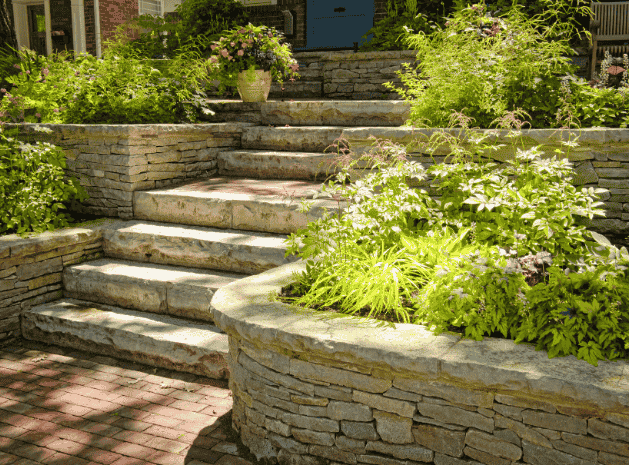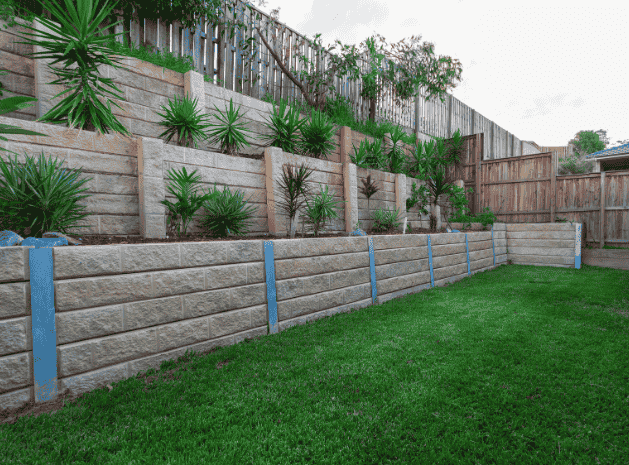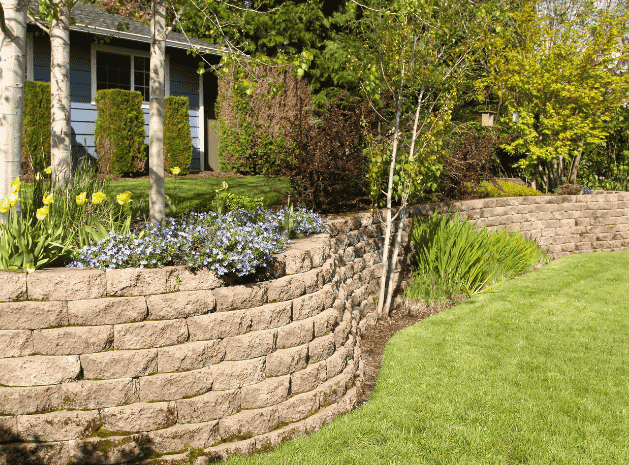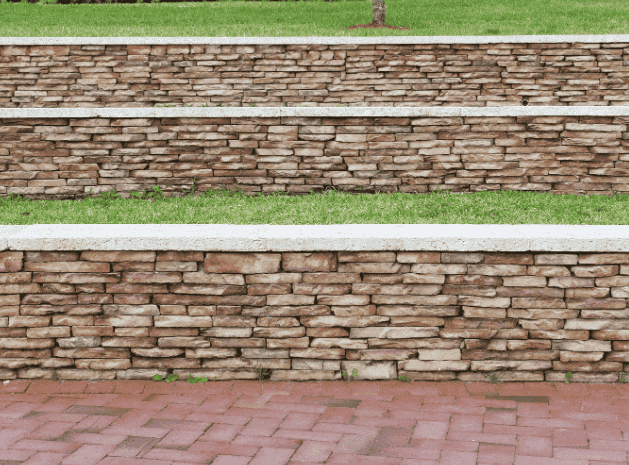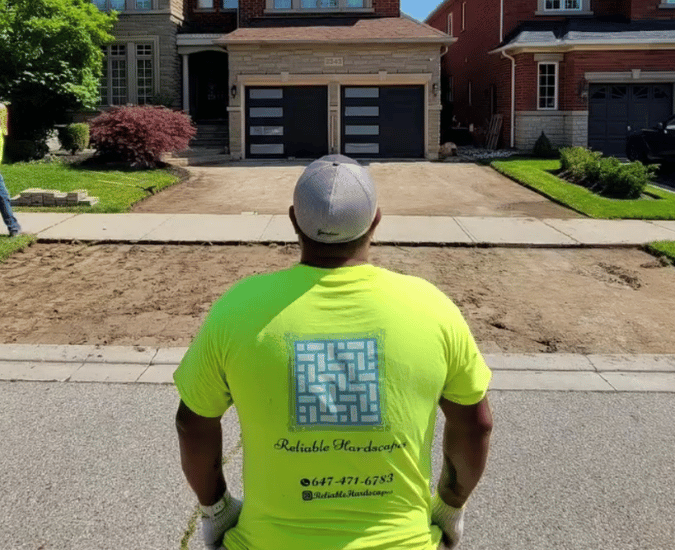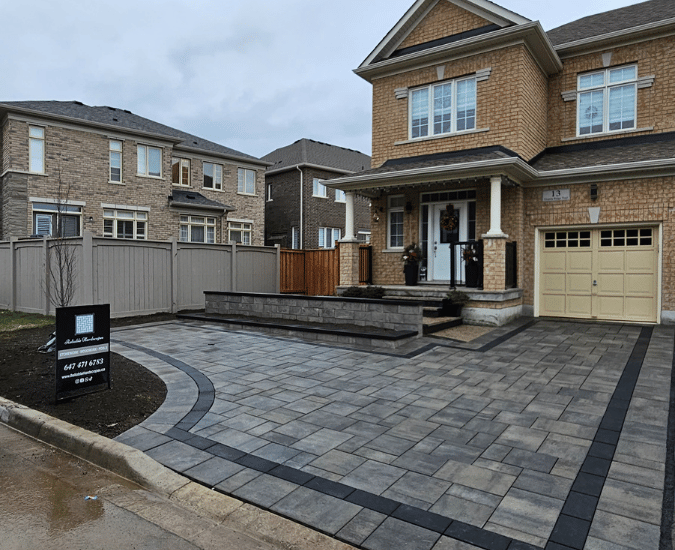The Ultimate Guide to Retaining Walls in Mississauga: Types, Installation, Costs, and Design Tips
If you’ve ever considered enhancing your backyard or front yard with a functional yet attractive feature, retaining walls could be the perfect solution. These structures not only help with land stability but also contribute to the overall aesthetic of your property. Whether you’re looking to create a garden terrace, prevent soil erosion, or simply add a decorative element, retaining walls are an essential part of many landscaping projects in Mississauga. This guide will walk you through everything you need to know about retaining walls, including their types, installation process, costs, and maintenance.
What Are Retaining Walls?
A retaining wall is a vertical structure designed to hold back soil, prevent erosion, and manage elevation differences in landscaping. These walls are commonly used in both residential and commercial properties to create level areas in sloped yards or to support the foundation of a structure. Not only do they serve a practical purpose, but retaining walls can also enhance the visual appeal of your backyard or front yard.
Retaining walls are essential for homes with uneven terrain or sloped gardens, helping to stabilize the land and prevent shifting soil that could damage plants, pathways, or other structures.
Types of Retaining Walls
When selecting a retaining wall, it's important to understand the different types available. Each type offers distinct benefits depending on your project’s needs.
Gravity Retaining Walls: These walls rely on their own weight to resist the pressure exerted by the soil behind them. They are typically used for shorter walls and are ideal for backyards or front yards where you don’t need a lot of height.
Cantilevered Retaining Walls: These walls use a base slab that extends outward to counterbalance the pressure of the soil behind the wall. They are used for taller structures and are highly effective at resisting soil movement, making them a great option for retaining walls with a fence on top.
Counterfort Retaining Walls: This type uses internal reinforcements called counterforts, which are placed at intervals along the back of the wall to provide additional support. They are suitable for taller walls and heavier loads.
Anchored Retaining Walls: Anchored walls have cables or anchors embedded deep in the soil to increase stability. These are useful for very tall retaining walls or when constructing in challenging soil conditions.
Modular Block Retaining Walls: These walls are made from pre-cast, interlocking blocks. They are highly versatile, easy to install, and cost-effective, making them a popular choice for residential projects. The blocks can be stacked to form a sturdy wall, which is great for retaining walls in backyard gardens.
Stone or Rock Retaining Walls: Stone walls provide a natural, rustic aesthetic while offering strong, long-lasting support. These walls are often chosen for their beauty and are perfect for creating a natural appearance that blends with the environment.
Choosing the Right Retaining Wall for Your Yard
When deciding on the type of retaining wall for your yard, it’s important to consider your space and goals.
Front Yard Retaining Walls: A retaining wall in the front yard serves both functional and decorative purposes. It can prevent soil erosion and create a clean, organized look. Consider materials like stone, brick, or modular blocks for a neat and elegant appearance that enhances your home’s curb appeal.
Backyard Retaining Walls: A backyard retaining wall can be used to level out sloped areas, create tiered gardens, or even divide different zones of your yard. Depending on your landscape, you might opt for a taller wall with a decorative finish to add visual interest.
Retaining Walls with Fences on Top: If you’re looking for additional privacy or security, adding a fence on top of your retaining wall can be a great choice. These walls are common in both front and backyard areas, providing both stability and a secure boundary.
Factors to Consider When Installing a Retaining Wall
Before starting your retaining wall project, there are several key factors to consider to ensure that your wall performs its function and lasts for many years.
Retaining Wall Height: The height of the wall plays a major role in its design and functionality. In Mississauga, retaining walls for residential properties typically range from a few feet to 6 feet in height. Anything taller might require additional engineering and permits. Be sure to check with local authorities for height restrictions.
Soil Type and Drainage: Soil conditions in Mississauga can greatly impact the construction of your wall. Sandy soils, for example, drain more easily than clay soils, which may require additional drainage systems behind the wall to prevent water buildup. Proper drainage is essential to avoid pressure buildup and wall failure.
Location and Design: Think about where your retaining wall will be located. Backyard retaining walls can help with landscaping or tiered gardens, while front yard retaining walls might focus more on enhancing curb appeal. Design options range from rustic stone walls to modern block walls, giving you flexibility in aesthetics.
Retaining Wall Installation Process
The installation process of retaining walls typically involves several steps, from excavation to finishing. Here's a basic overview:
Excavation: The area where the wall will be built is excavated to ensure a stable base. The depth will depend on the type of wall being installed.
Base Preparation: A layer of gravel or crushed stone is added to create a solid foundation for the wall.
Building the Wall: Blocks, stones, or other materials are stacked, starting from the bottom and working upwards.
Reinforcement: Depending on the wall type, reinforcement may be added, such as anchors or drainage pipes.
Finishing: The top of the wall is finished with capstones or other materials to give it a clean, polished look.
Costs of Installing Retaining Walls in Mississauga
The cost of installing a retaining wall can vary greatly depending on the size, materials, and complexity of the project.
Materials: Stone, concrete blocks, and modular blocks come at varying prices.
Labor: The cost of professional installation will depend on the contractor's rates and the wall's size.
Design Complexity: Custom designs, such as retaining walls with fences on top, will generally cost more than simple gravity walls.
Average Costs: The average cost for retaining wall installation in Mississauga ranges from $20 to $40 per square foot, depending on materials and wall height.
Maintenance and Care for Retaining Walls
Regular maintenance ensures your retaining wall lasts for years. You should:
Routine Maintenance: Inspect the wall periodically for signs of cracking or shifting. Clean debris, especially around drainage areas, to ensure proper water flow.
Repairing Retaining Walls: If your retaining wall has cracks or tilts, it’s important to address the issue early to avoid further damage. Professional repair services can fix the structural issues and restore the wall’s stability.
Choosing Retaining Wall Contractors in Mississauga
When selecting a contractor for your retaining wall project, consider the following tips:
Experience and Reputation: Choose contractors with proven experience in retaining wall construction. Look for reviews and project portfolios.
Licensing and Insurance: Ensure the contractor is licensed and insured to perform the work.
Get Multiple Quotes: Compare quotes from different contractors to get a sense of the fair price for your project.
Conclusion
Retaining walls are an essential landscaping feature that can provide both functional and aesthetic benefits to your property. Whether you’re looking to stabilize a slope in your backyard or enhance your front yard with a beautiful wall, there are many options to choose from. By understanding the different types of retaining walls, considering the factors that impact installation, and hiring a reputable contractor, you can create a durable and visually appealing retaining wall for your home in Mississauga.



